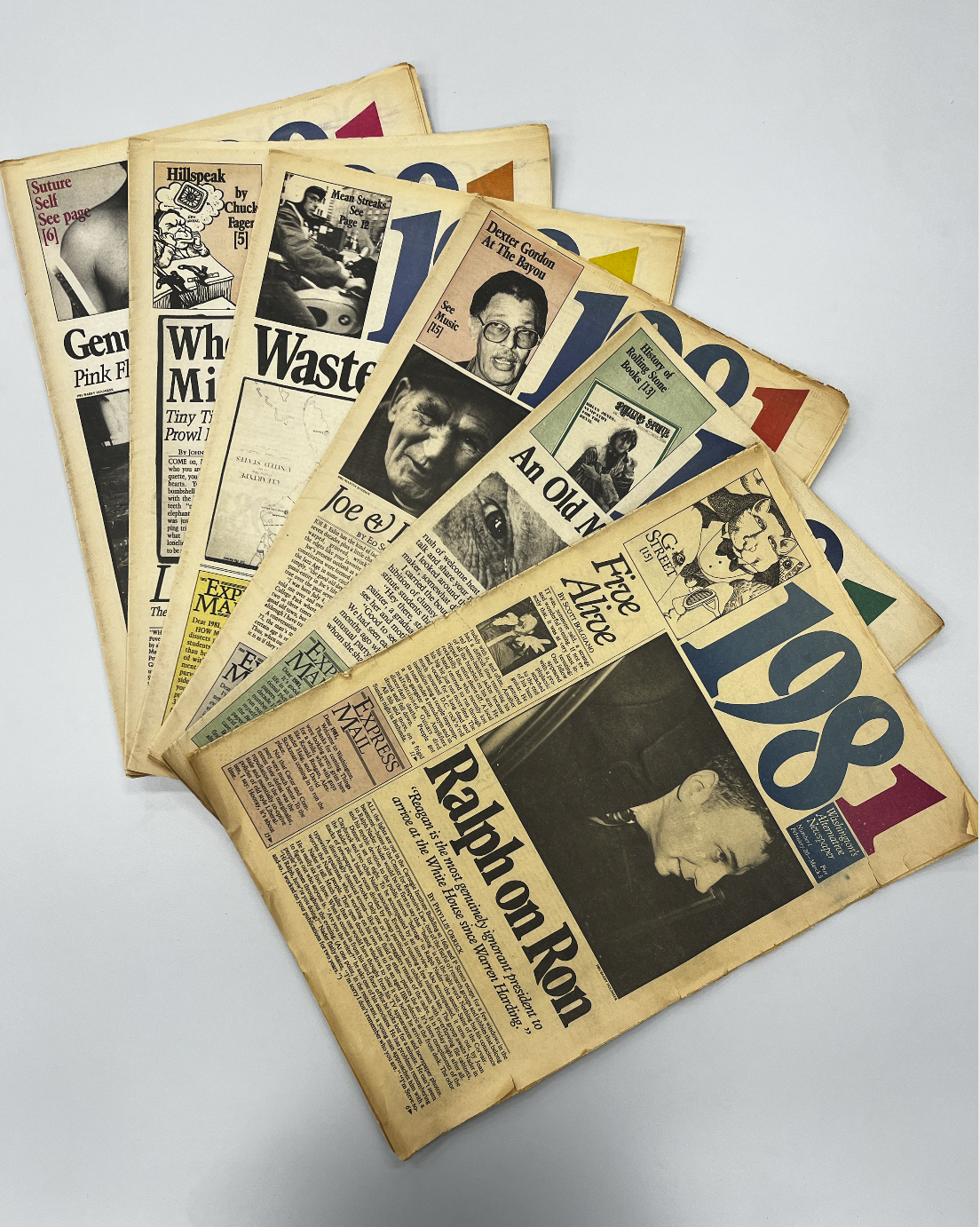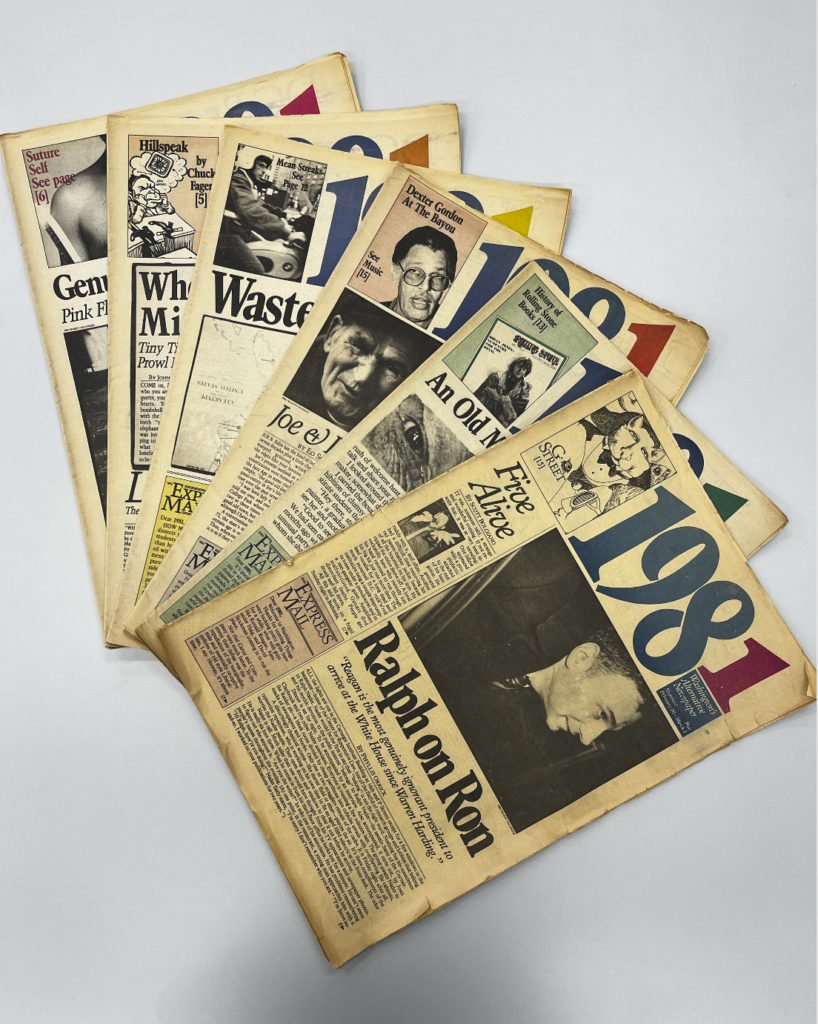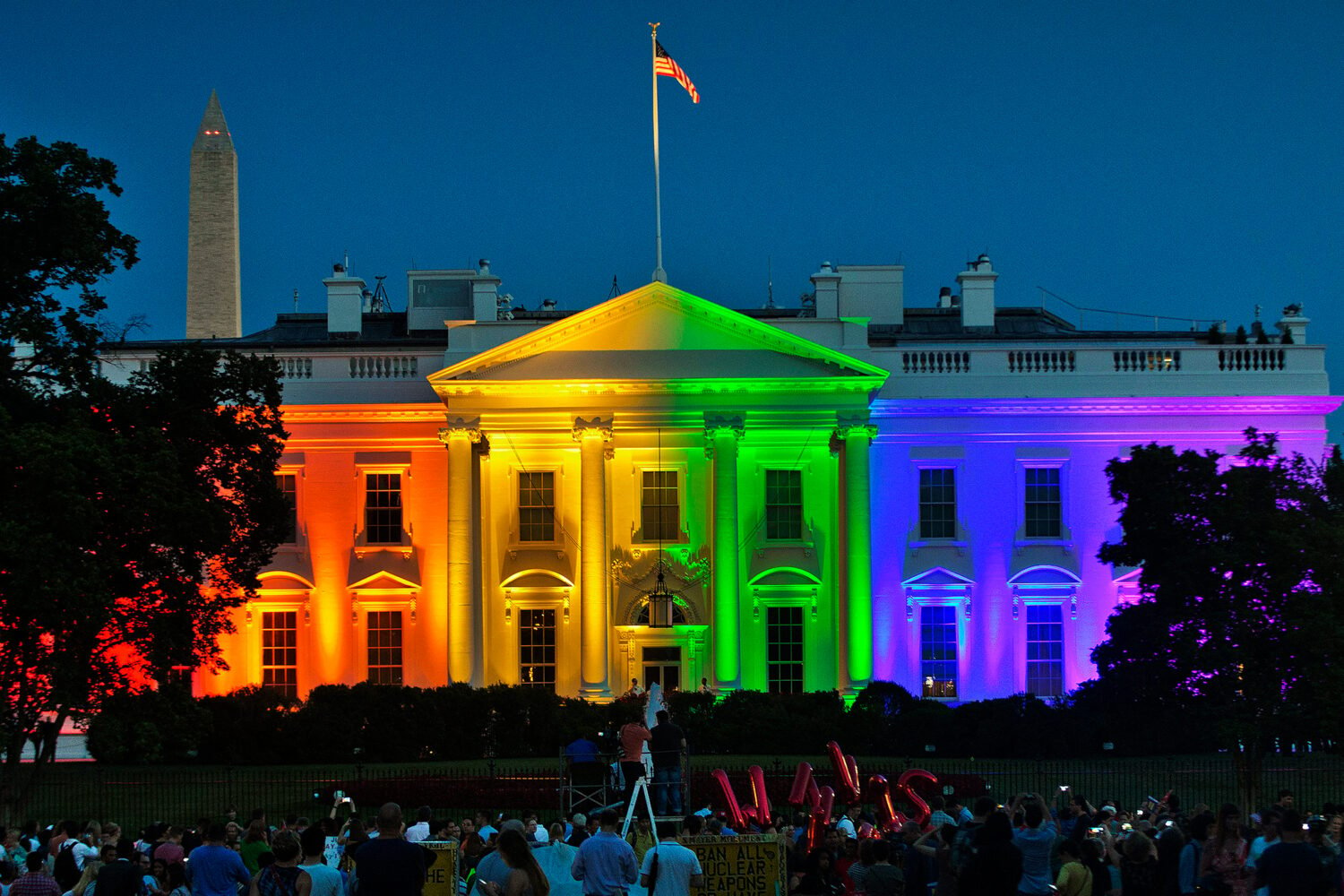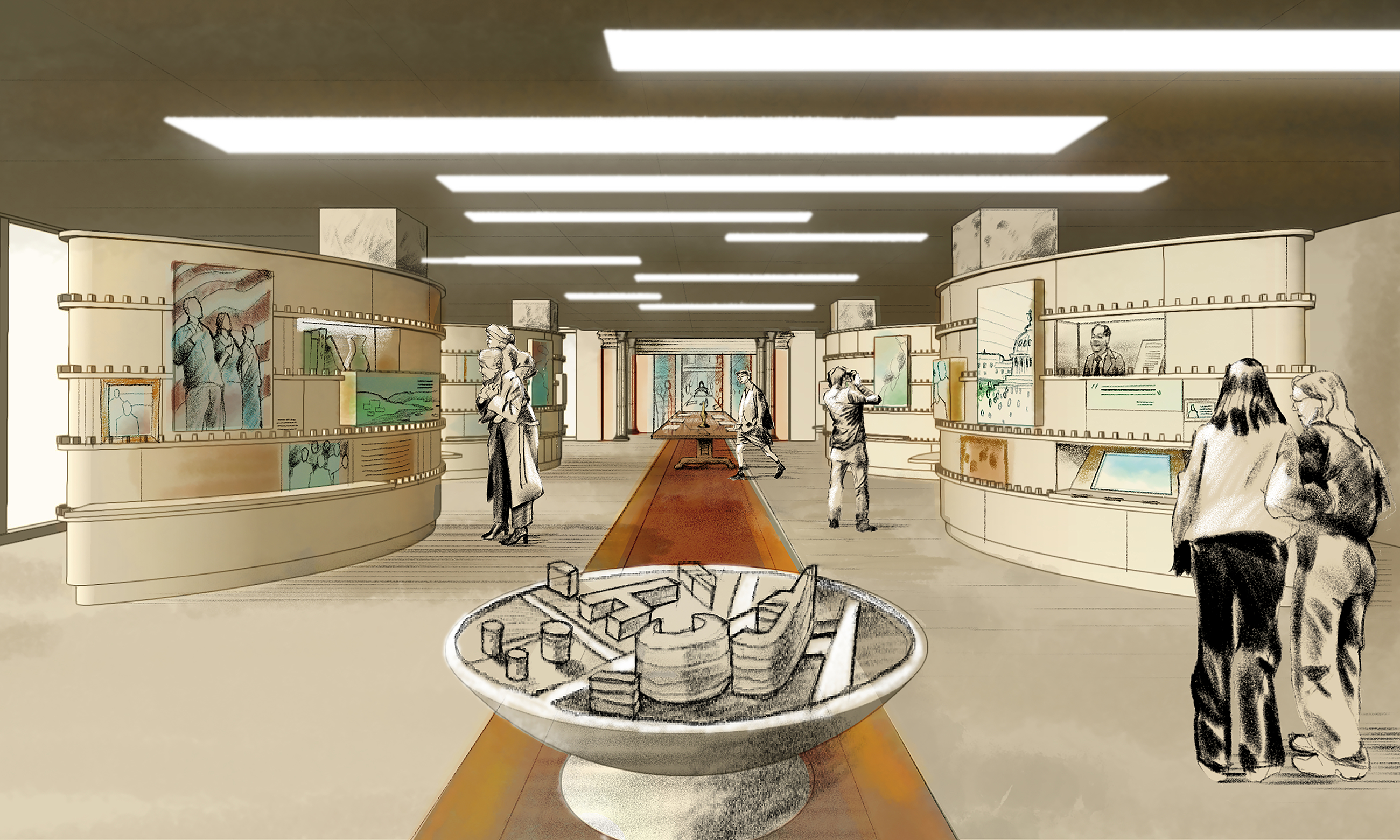

Washington’s alternative weekly newspapers are an invaluable resource for historians and other researchers, and the DC Public Library has been digitizing its extensive collection of old issues of Washington City Paper and the Washington Blade, long-running gay newspaper. But there’s a problem: The scans can be hard to search, making them far less useful.
The library has lately been enlisting a small army of volunteers to help. At a series of sessions dubbed Describe-a-Thons, lovers of local history have been reading through old issues and entering descriptions and keywords into an online database. Recently, I decided to join one such effort, hoping to help preserve the city’s history and also to enjoy a bit of alt-media-fan camaraderie. (I used to work at City Paper myself.)
After signing on to Zoom from home, the members of our session were joined by DC Public Library digital-curation librarian Laura Farley, who is overseeing the effort. Our work would be “a love letter to the future,” Farley told us, then explained what was important to include in our Google spreadsheets (full names, party affiliations of politicians), what wasn’t strictly necessary (the subjects of letters to the editor), and how to deal with certain outdated phrases that some might find offensive. “You don’t want to erase that language, because there are people who are doing research around that,” Farley said. “It’s a complicated, ever-evolving process.”
From there, it was two hours of reading and keyword-inputting, in my case focused on a single 2004 copy of the Blade. It was interesting work: The issue had stories about the fight to legalize same-sex marriage and a preview of a DC queer-punk festival. Finally, the 116-page paper had been condensed into a few hundred words that could now alert researchers to the riches lurking within the scans.
The library plans to hold more Describea-Thons soon, and Farley hopes to have in-person events at some point, too. “There’s no substitute for touching and seeing something,” she says. “But having these digital surrogates and making them searchable opens them up to so many people.”
This article appears in the April 2023 issue of Washingtonian.


















